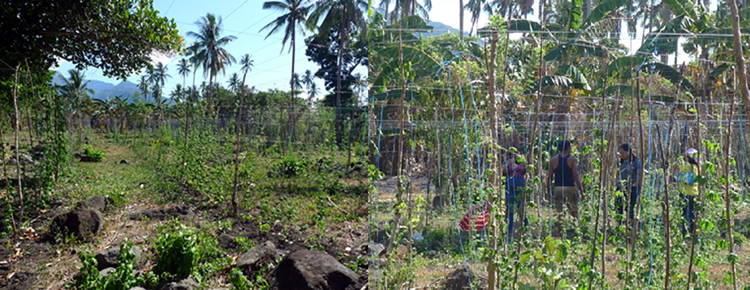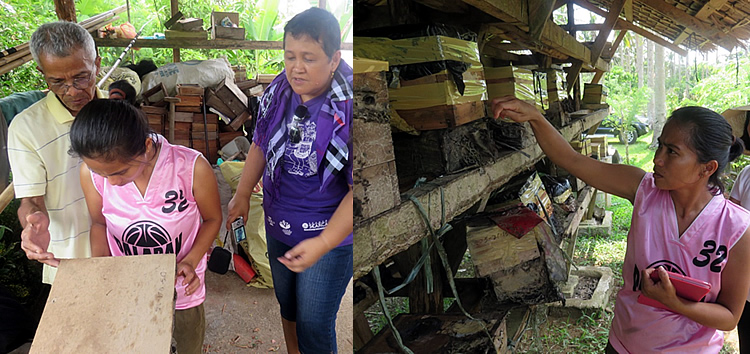The two projects include a community-based approach to sustainable beekeeping in Sorsogon and an approach to scaling up agroforestry in Quezon province, both supported by the Seed Fund for Research and Training (SFRT) of the Southeast Asian Regional Center for Graduate Study and Research in Agriculture (SEARCA).
In a recent monitoring visit made by SEARCA’s Research and Development Department (RDD), Dr. Maria Dulce J. Mostoles, project leader of “Community-Based Approach to Sustainable Utilization, Management and Development of Beekeeping in Sorsogon,” emphasized the importance of proper beekeeping to ensure sustainability of stingless bee population and the ecosystem in general. She said that the SFRT-funded project has revealed the issues, challenges, and prospects in the establishment of community-level meliponiaries, a beekeeping technology using stingless bees.
Dr. Mostoles, a professor at the Central Bicol State University of Agriculture (CBSUA), took SEARCA’s RDD monitoring team to three privately-owned small-scale bee farms practicing meliponiculture in Casiguran and Bulusan, Sorsogon on 17-19 April 2016.
The project specifically aims to appraise the community’s ethnological/meliponicultural practices, map and inventory the stingless bee population at both barangay and municipal levels, and enhance the roles of major players in establishing community-level meliponiaries.
The second SFRT project visited by SEARCA RDD team on 25 April 2016 is titled “Scaling-Up Agroforestry Promotion for Sustainable Development of Selected Smallholder Farmers in the Philippines.” Dr. Reynaldo A. Comia, associate professor at the Institute of Agroforestry, University of the Philippines Los Baños, leads the project. In its site in Barangay Concepcion Banahaw in Sariaya, Quezon, the project showcases how farmers can integrate different fruit trees in their farms where they cultivate crops such as ampalaya, squash and other vegetable crops depending on the season. This agroforestry farming practice, according to the project team, aims to enhance the ecology and conserve biodiversity; augment the incomes of farmers, and provide them year-long food supply.
SEARCA’s SFRT Program aims to provide start-up funds to researchers and scientists in the Southeast Asian region who want to make significant contributions in research, development and knowledge dissemination but are hindered by lack of funds. It also seeks to expand SEARCA’s reach in the areas of research, capacity building, and knowledge contribution on Inclusive and Sustainable Agricultural and Rural Development in the region.(Maria Katrina R. Punto)

